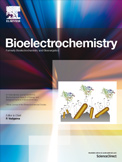Jobs and Fellowship Positions
Please note that position announcement can only be posted for BES members in good standing.
Send your announcement in a WORD file to the BES Office (info@bioelectrochemical-soc.org) and we will take care of the posting within 48 hours. PDF files are not accepted. The announcement will remain on the website for approximately for three (3) months.
Electroenzymatic biosensor for H2 detection
PhD Position 2024-2027 - Marseille, France
Laboratory: Bioenergetics and Protein Engineering (BIP), CNRS, Aix-Marseille University - https://bip.cnrs.fr/groups/bip08/
Position Overview:
Join our dedicated team at the CNRS and Aix-Marseille University to undertake groundbreaking research on hydrogen detection technologies, crucial for sustainable energy solutions. This PhD position offers the opportunity to design and develop a state-of-the-art electroenzymatic biosensor for hydrogen (H2) detection, addressing the urgent need for safe hydrogen storage and utilization.
Research Context:
With the pressing challenge of climate change, the development of CO2-neutral energy sources is vital. Hydrogen is a promising sustainable energy carrier, but its properties require advanced detection systems for safe storage and handling. Our research focuses on the use of Ni-Fe hydrogenase from Aquifex aeolicus for the development of sensitive, miniaturized biosensors capable of detecting hydrogen in various environmental conditions.
Research Goals:
• Optimize enzyme immobilization for enhanced H2 oxidation catalysis.
• Develop methodologies to overcome hydrogen mass transport limitations.
• Employ in situ and operando techniques to map enzyme activity.
• Improve bioelectrode stability under various conditions.
• Explore the effects of biosensor geometry and miniaturization on sensor performance.
• Enhance fundamental understanding of enzymatic behavior in confined spaces and integrate findings with enzymatic fuel cell technologies.
Candidate Profile:
• Master’s degree in Chemistry, with a strong focus on Analytical Chemistry.
• Keen interest in Electrochemistry and 3D Printing.
• Enthusiasm for multidisciplinary research.
Funding: This position is co-funded by Aix Marseille University and the Agence-Innovation-Défense (AID).
Application Process:
Please submit your CV, a motivation letter, copies of academic transcripts and degrees, and two recommendation letters to Dr. Elisabeth Lojou at lojou@imm.cnrs.fr.
Application Deadline: 31st December 2024
Thesis position BIP (PDF)

